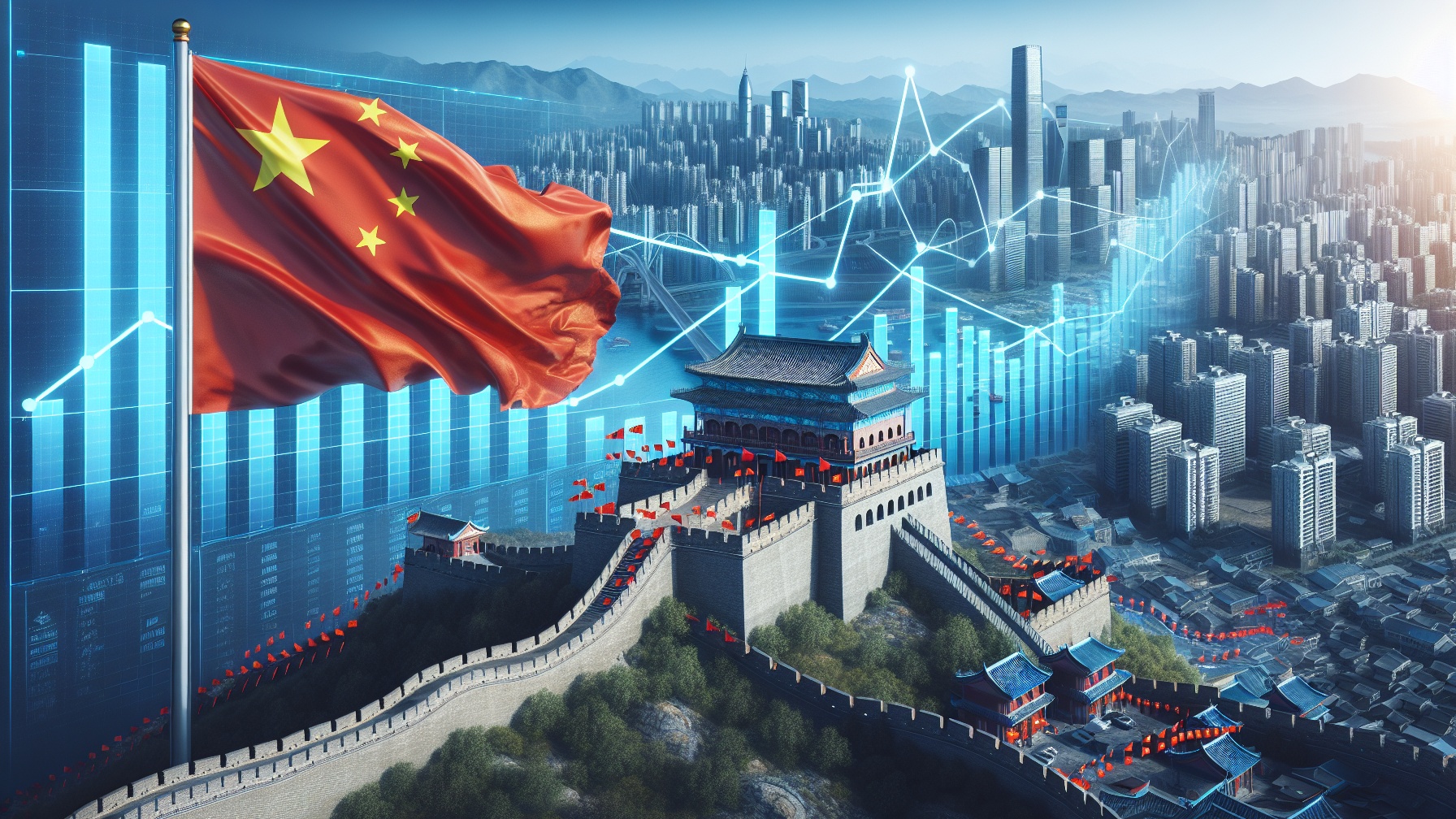With the Russo-Ukraine War and Israel’s battles with Hamas and Hezbollah comprising most of corporate media commentary on U.S. foreign policy for more than a year, it’s easy to overlook that many wonks label China our nation’s top security threat. On September 12, the Select Committee on the Chinese Communist Party (CCP) released an investigative report on the CCP’s threat to U.S. economic and national security. FBI director Christopher Wray in April warned that Beijing is targeting U.S. critical infrastructure. A congressional commission declared in July that the United States could lose a war with China. Nobody is using this kind of language to describe the threat posed by Russia, terrorist groups, or Iran.
There are examples aplenty to authenticate this danger. In 2022, a report found that Chinese hackers had stolen trillions of dollars in intellectual property from about 30 multinational companies; the Chinese government has also regularly stolen classified U.S. military technology to build its own arsenal, including the J-20 fighter jet. Beijing’s funding of smart-city technology enables Chinese security services to collect data on millions of people and export its special brand of surveillance and repression around the world through such companies as Huawei. What is perhaps most insidious, China produces 97% of the world’s supply of fentanyl precursors, subsidizing pill presses, die molds, and of course fentanyl exports that are now killing 100,000 Americans a year.
That China’s economy may soon overtake our own and that its military may soon be the strongest in the Pacific has the American electorate worried, half of which having named China as the country posing the great threat to the United States. But what if tales of China’s inexorable ascendance are exaggerated, and thus our fears unfounded, or at least more manageable? This is the thesis of Dennis Unkovic, an international lawyer, author, and business consultant who has spent significant time in Asia and specifically China, and his new book The Fragility of China: Breaking Points of an Invincible Regime.
Unkovic’s argument is built on what he calls MaxTrends®, which are “specific events or developments that can produce a measurable impact—positive or negative—on how nations, individuals, industries, and economies perform.” In the case of China, he argues, “MaxTrends® have the potential to redirect, or in some cases prevent, Xi Jinping and the Chinese Communist Party from achieving their ambitious international agenda.” (The somewhat ludicrous use of this term to describe phenomena widely recognized by scholars and pundits, and the registered trademark symbol that appends it, is at first annoying, then quickly becomes insufferable).
The Fragility of China features 13 MaxTrends® that portend future problems for China. These include too few people, Taiwan, global competition for rare earth elements, China’s real estate market and manipulated currency, a fractured global supply chain, worsening climate change and polluting policies, toxic air and not enough water, corruption, the global arms race, global nationalism, the struggle for technological and innovation dominance, Beijing’s rejection of foreign investment, and its control over intellectual property. Some of these phenomena and their potential impact on Chinese-U.S. competition are better argued than others.
For example, demographics offer an easily appreciable difficulty to China’s growth. Between 2011 and 2020, China’s working-age population shrunk from 70% to 63.3%, and over the next five years the country’s workforce is slated to shrink by 35 million workers. President Xi Jinping’s abandonment of the one-child policy in 2015 has done little to curb the country’s declining birth rate, which is at record lows and well below replacement level. Unkovic claims this is already causing significant staffing problems in some Chinese industries—though he neglects to offer specific examples.
Another vulnerability is China’s economy: As much as a third of it is tied up in its real estate market (almost double that of the United States), and about 70% of the assets owned by Chinese citizens are tied up in real estate. Here the cracks are already visible, evidenced by the 2023 bankruptcy of the China Evergrande Group, one of China’s biggest private developers. Even more arresting is that China’s debt-to-GDP ratio (297%) is more than double that of the United States (129%).
Beijing must also confront significant environmental problems, such as air pollution, which is estimated to kill approximately 2 million Chinese nationals per year, according to the World Health Organization. The country also suffers critical water shortages, while possibly half the population cannot access safe drinking water without its first being treated. Foreign Affairs in 2022 warned that the country was “on the brink of a water catastrophe.”
An excessive regulatory environment—which affects such domestic companies as Tencent Holdings Ltd., Alibaba Group, and ByteDance—in turn stymies efforts to make China a global leader in innovation. Restrictions on foreign investment near military sites and severely limiting or preventing investment from outside companies have also slowed economic growth. A 2023 counterespionage law punishes non-Chinese companies and individuals doing business in China if authorities determine there is any transfer of information that could arguably impinge on Chinese national security interests. Although Unkovic mentions only Apple, corporations such as Microsoft, Dell, IBM, Stanley Black & Decker, Blizzard Entertainment, and Airbnb are all withdrawing investment from China, citing political tensions, cybersecurity, rule-of-law concerns, and the government’s unrelenting attempts to steal their intellectual property.
Unkovic assesses that a Chinese invasion of Taiwan would be viewed by other Asian nations as a “direct threat to their own borders and sovereignty,” which would in turn trigger punitive trade restrictions or prohibitions on Chinese exports. Possibly, though countries such as Vietnam and Indonesia, whose top trading partner is China, are far from free to “decouple,” as it were, from China’s economy. An invasion of Taiwan, Unkovic argues, would have “countless risks,” which is true but likely not enough to deter Xi, who in 2023 called the annexation of Taiwan an “historical inevitability.” Unkovic thinks that an invasion of Taiwan would permanently damage China’s political, military, and economic relationships around the world, but it’s unclear what real effect, if any, this would have. Indeed, Russia’s ability to weather international condemnation of its invasion of Ukraine demonstrates the limiting influence of “global reputation.”
Some MaxTrends® seem as much a problem for everyone else in the world as for China. In his chapter on the fractured global supply chain, Unkovic notes that China must address such developments as rising global labor costs, cyber warfare, 3D manufacturing, robotics, foreign direct investment, and domestic sourcing—but so does America. He discusses Chinese corruption—and Xi’s aggressive attempts to challenge it—but it’s unclear from his narrative what problem this presents to the nation’s future dominance, given that, unlike many other countries where corruption is endemic, it hasn’t prevented China from becoming a world power. Unkovic claims that China’s participation in an arms race with the United States is a potential breaking point because it’s expensive … but isn’t that potentially true for America, too? And other MaxTrends®, such as China’s dominance in rare earth elements, seems a strength rather than a weakness.
The third section of The Fragility of China turns to recommendations for the West, some more astute than others. The first of these is that the United States must maintain blue-water superiority, with Unkovic warning that Washington has perhaps a decade to accelerate the growth of its naval forces before China reaches parity in the Pacific region. Although the author doesn’t mention it, a report from last year found that China’s shipbuilding capacity is 232 times greater than that of the United States; the U.S. currently has only four public shipyards capable of building military-grade vessels. Obviously, this must be a top priority for U.S. military strategic planning.
America must also strengthen its U.S. cyber-warfare capabilities and ensure its continued primacy in innovation (about two-thirds of global technologies are currently Western-based); Unkovic’s recommendation, however, is unimpressive, vaguely arguing that the United States and other Western countries should “take seriously” China’s technological development. Most jarringly, Unkovic urges a reinvigoration of the United States’ relationship with international organizations such as the World Trade Organization, International Monetary Fund, and United Nations, which seems a bit naive, given that these organizations are less accountable to American taxpayers and have a historical tendency to push policies not in our strategic interests.
Unkovic also suggests increasing U.S. investment and diplomatic efforts in Africa to counter those of China, including investing in valuable natural resources, combatting health crises through greater financial assistance, and fostering stronger diplomacy. That seems like common sense, though Washington will likely have to get out of its own way, given its misplaced focus on sanctioning and punishing African nations that resist the U.S. Department of State’s pro-LGBTQ+ policies. The United States must also make China its highest priority—which, based on the many examples cited by Unkovic, seems warranted, as long as he means highest foreign policy priority. (Immigration, failing infrastructure, and out-of-control federal spending, among many other crises, all represent acute domestic problems that also deserve immediate attention from our policymakers.)
While The Fragility of China offers a welcome analysis of many of the most important developments that will define U.S.-China relations in the coming decades, I confess a certain disappointment with it. There are some strange narrative decisions, such as Unkovic’s disjointed summary of Chinese history. He notes that as Egyptian civilization peaked 3,500 years ago, Europe remained largely wild and unexplored, while China was flourishing with “an advanced culture,” but offers no details on what that culture was, instead immediately moving on to the Tang Dynasty, which appeared 2,000 years later. The next five pages offer a breezy summary of Chinese history that somehow neglects to mention the Boxer Rebellion, the abdication of the last Qing emperor in 1912, the Second Sino-Japanese War, the communists’ defeat of Chiang Kai-shek, the Great Leap Forward, and the Cultural Revolution.
The book’s structure, too, bespeaks some strange decision-making. Unkovic offers us no less than six appendices—but no bibliography. Although respected pundits George F. Will and Gordon G. Chang offer commendatory blurbs on the back, the book refrains from citing any prominent current Sinologists, such as Michael Pillsbury, Steven Mosher, David Goldman, Evan Osnos, Elizabeth Economy, and Martin Jacques, among others. Given the stakes of current (and future) U.S.-China competition for global economic and military dominance, such omissions in Unkovic’s text are unfortunate. Is Unkovic perceiving trends that other scholars are also identifying? If so, how dire do they view China’s current position? Like the varying validity of his MaxTrends® and recommendations, these unanswered questions make, in the end, for an uneven analysis of an extremely important topic.

